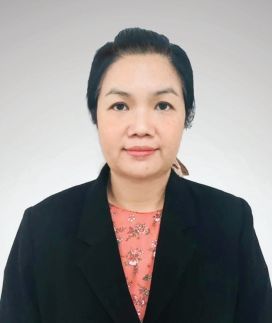An Action Research to Develop a Model of Promoting Knowledge and Behavioral Adjustment of Hypertensive Patients
Main Article Content
Abstract
OBJECTIVES: This research aimed to develop a model of promoting knowledge and behavioral adjustment of hypertensive patients.
MATERIALS AND METHODS: This action research was based on the concept of Kemmis and Mc Taggart (1988). The sample of 34 people consisted of 24 hypertensive patients and 10 community health volunteers. The research instruments were divided into the following two parts: 1) a general information questionnaire for older adults; 2) a qualitative data collection instrument consisting of semi-structured interviews, focus group discussions, and observations. The study was conducted between 30 November 2021-10 March 2022. Quantitative data were statistically analyzed by using frequency, percentage, mean and standard deviation. Qualitative data analysis used thematic analysis.
RESULTS: A model of promoting knowledge and behavior adjustment was developed for hypertensive patients through community participation. Both cycles found that there were 4 development activities: 1) educating knowledge to hypertensive patients; 2) education about behavior modification; 3) providing models to transfer knowledge; 4) exchanging knowledge and using learning materials. Knowledge increased considerably, averaging from 14.87 ± 5.21 to 17.37 ± 4.65 (t = -2.882, p = 0.010, 95%CI -4.368 to -0.685). Hypertension complications prevention behavior of hypertensive patients was a high score, with diet control of 87.50 %, exercise at 91.70%. After the second round, hypertension patients were satisfied to develop a model of promoting knowledge and behavioral adjustment, at an higher number and percentage after developing a model from 18 (75.00%) to 21 (87.50%). After developing a model, and having completed the second round, community health volunteers classified the satisfaction of hypertension patients. This showed an increased satisfaction to develop a model of promoting knowledge and behavioral adjustment of hypertensive patients from 8 (80.00%) to 10 (100%).
CONCLUSION: Nurses and healthcare workers should focus on educating and promoting the participation of patients and community health volunteers in encouraging hypertension patients to engage in self-care.
Article Details

This work is licensed under a Creative Commons Attribution-NonCommercial-NoDerivatives 4.0 International License.
This is an open access article distributed under the terms of the Creative Commons Attribution Licence, which permits unrestricted use, distribution, and reproduction in any medium, provided the original work is properly cited.
References
World Health Organization (WHO). Hypertension. (Access February 1, 2023 at https://www.who.int/news-room/fact-sheets/detail/hypertension).
World Health Organization (WHO). Blood pressure/hypertension. (Access February 1, 2023 at https://www.who.int/data/gho/ indicator-metadata-registry/imr-details/3155).
Panmung N, Ketjuna H, Nakkarach B, et al. Guidelines for management when a person with high blood pressure is identified in a hospital. Nonthaburi: Department of Disease Control; 2022.
World Health Organization (WHO). Hypertension care in Thailand: best practices and challenges. (Access February 1, 2023 at https://apps.who.int/iris/rest/bitstreams/1265400/ retrieve).
Kemmis S, McTaggart R. The action research planer.3rd ed. Geelong: Deakin University Press;1992.
Inchaiya C, Kaewkerd O, Daenkasai S, et al. Development of a participation model for prevention among alcohol drinking and smoking older adults in the community. J Nurs Healthc 2021;39(3):120-9. Available from: https://he01.tci-thaijo.org/ index.php/jnat-ned/article/view/251300
Sukwong W, Wannakul T, Sopitpakdeepong C. Effectiveness of health education program applying self-care theory in hypertension patient. Bangkok: Suan Sunandha Rajabhat University; 2011.
Strauss A, Corbin, J. Basics of qualitative research: Grounded theory procedures and techniques: Sage publication;1990.
Borisut N. The study of the situation and direction of the development of village health volunteers in the era of Thailand 4.0. (Access February 1, 2023 at http://phc.moph.go.th/ www_hss/data_center/ dyn_mod/the_study_of_situation_ and_village_health_volunteer_development_2.pdf).
Maneepong P, Singjuy W, Sookham S, et al. The relationship between health literacy and health behaviors 3E-2S in people ,Suphanburi Province. J Boromarjonani Coll Nurs Suphanbur 2021;4(1): 84-93.
Insrichuen S, Panomkwan C, Pakahan D, et al. The effect of the development of hypertension self-care program in order persons with hypertension. JG-MCUKK 2021;8(2):102-16. Available from: https://so02.tci-thaijo.org/index.php/jg- mcukk/article/view/247545
Boonyathee S, Seangpraw K, OngArtborirak P, et al. Effects of a social support family caregiver training program on changing blood pressure and lipid levels among elderly at risk of hypertension in a northern Thai community. PLoS One 2021; 16(11): e0259697. doi:10.1371/journal.pone.0259697.
Thongsuk W, Tipwareerom W, Supametaporn P. Effects of empowerment program on health behaviors, body mass index and blood pressure levels in patients with uncontrolled hyper- tension. Nurs J 2020;47(4): 229-41.
Treciokiene I, Postma M, Nguyen T, et al. Healthcare professional-led interventions on lifestyle modifications for hypertensive patients–a systematic review and meta analysis. BMC Fam Pract 2021;22:63. doi:10.1186/s12875-021- 01421-z.
Singhasem P, Krinara P, Tiparat W, et al. The action research for enhancing health literacy among elderly in Nongtrud Sub-district, Muang District, Trang Province. Journal of Health Science 2020 ;29(5): 790-802.


